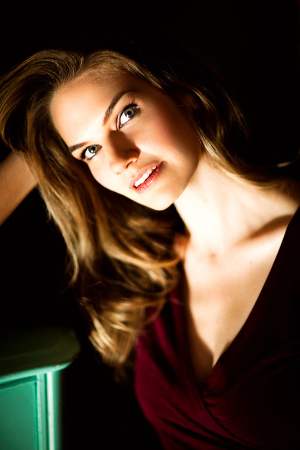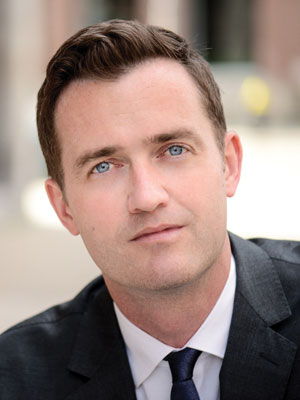Recently in Performances
English Touring Opera are delighted to announce a season of lyric monodramas to tour nationally from October to December. The season features music for solo singer and piano by Argento, Britten, Tippett and Shostakovich with a bold and inventive approach to making opera during social distancing.
This tenth of ten Live from London concerts was in fact a recorded live performance from California. It was no less enjoyable for that, and it was also uplifting to learn that this wasn’t in fact the ‘last’ LfL event that we will be able to enjoy, courtesy of VOCES8 and their fellow vocal ensembles (more below …).
Ever since Wigmore Hall announced their superb series of autumn concerts, all streamed live and available free of charge, I’d been looking forward to this song recital by Ian Bostridge and Imogen Cooper.
Although Stile Antico’s programme article for their Live from London recital introduced their selection from the many treasures of the English Renaissance in the context of the theological debates and upheavals of the Tudor and Elizabethan years, their performance was more evocative of private chamber music than of public liturgy.
Evidently, face masks don’t stifle appreciative “Bravo!”s. And, reducing audience numbers doesn’t lower the volume of such acclamations. For, the audience at Wigmore Hall gave soprano Elizabeth Llewellyn and pianist Simon Lepper a greatly deserved warm reception and hearty response following this lunchtime recital of late-Romantic song.
For this week’s Live from London vocal recital we moved from the home of VOCES8, St Anne and St Agnes in the City of London, to Kings Place, where The Sixteen - who have been associate artists at the venue for some time - presented a programme of music and words bound together by the theme of ‘reflection’.
'Such is your divine Disposation that both you excellently understand, and royally entertaine the Exercise of Musicke.’
‘And there was war in heaven: Michael and his angels fought against the dragon; and the dragon fought and his angels, And prevailed not; neither was their place found any more in heaven … that old serpent … Satan, which deceiveth the whole world: he was cast out into the earth, and his angels were cast out with him.’
There was never any doubt that the fifth of the twelve Met Stars Live in Concert broadcasts was going to be a palpably intense and vivid event, as well as a musically stunning and theatrically enervating experience.
‘Love’ was the theme for this Live from London performance by Apollo5. Given the complexity and diversity of that human emotion, and Apollo5’s reputation for versatility and diverse repertoire, ranging from Renaissance choral music to jazz, from contemporary classical works to popular song, it was no surprise that their programme spanned 500 years and several musical styles.
The Academy of St Martin in the Fields have titled their autumn series of eight concerts - which are taking place at 5pm and 7.30pm on two Saturdays each month at their home venue in Trafalgar Square, and being filmed for streaming the following Thursday - ‘re:connect’.
The London Symphony Orchestra opened their Autumn 2020 season with a homage to Oliver Knussen, who died at the age of 66 in July 2018. The programme traced a national musical lineage through the twentieth century, from Britten to Knussen, on to Mark-Anthony Turnage, and entwining the LSO and Rattle too.
With the Live from London digital vocal festival entering the second half of the series, the festival’s host, VOCES8, returned to their home at St Annes and St Agnes in the City of London to present a sequence of ‘Choral Dances’ - vocal music inspired by dance, embracing diverse genres from the Renaissance madrigal to swing jazz.
Just a few unison string wriggles from the opening of Mozart’s overture to Le nozze di Figaro are enough to make any opera-lover perch on the edge of their seat, in excited anticipation of the drama in music to come, so there could be no other curtain-raiser for this Gala Concert at the Royal Opera House, the latest instalment from ‘their House’ to ‘our houses’.
"Before the ending of the day, creator of all things, we pray that, with your accustomed mercy, you may watch over us."
The doors at The Metropolitan Opera will not open to live audiences until 2021 at the earliest, and the likelihood of normal operatic life resuming in cities around the world looks but a distant dream at present. But, while we may not be invited from our homes into the opera house for some time yet, with its free daily screenings of past productions and its pay-per-view Met Stars Live in Concert series, the Met continues to bring opera into our homes.
Music-making at this year’s Grange Festival Opera may have fallen silent in June and July, but the country house and extensive grounds of The Grange provided an ideal setting for a weekend of twelve specially conceived ‘promenade’ performances encompassing music and dance.
There’s a “slide of harmony” and “all the bones leave your body at that moment and you collapse to the floor, it’s so extraordinary.”
“Music for a while, shall all your cares beguile.”
The hum of bees rising from myriad scented blooms; gentle strains of birdsong; the cheerful chatter of picnickers beside a still lake; decorous thwacks of leather on willow; song and music floating through the warm evening air.
Performances
![Amanda Forsythe [Photo by Arielle Doneson]](http://www.operatoday.com/amanda_forsythe_6_20131021_1478094411.png)
30 May 2016
Orphée et Euridice, Seattle
It’s not easy for critics to hit the right note when they write about musical collaborations between students and professionals. We have to allow for inevitable lack of polish and inexperience while maintaining an overall high standard of judgment.
That difficulty was swept away in moments when the curtain rose on
Gilbert Blin’s staging of C.W. von Gluck’s 1774 French-language
adaptation of his boundary-breaking 1762 Orfeo ed Euridice. With
polished professionals in the title roles, the marvelous “early
music” specialist Stephen Stubbs, an orchestra of equally seasoned
players in the pit, and a sensitive and visual concept by veteran
music-theater artists, the youth, energy and lack of professional polish
exhibited by the all-student chorus and dancers positively added to the
power of the production.
For me the very word “projections” causes an anticipatory
chill. How often has a staging been ruined by intrusive, inappropriate,
ill-executed background imagery? These projections, seamlessly contrived by
frequent Blin collaborators Travis Mouffe and Remy-Michel Trotier with
lighting designer Peter Bracilano, were intrusive, but in just the
right way: they glorified the stage action, sweetened and acidulated the
mood, turned the often distracting but necessary business of titling into a
marvelously inventive commentary on the very art of the librettist. Rarely
has a “bare stage” seemed so richly evocative.
 Valerie Vinzant
Valerie Vinzant
Meany Hall’s acoustic is ungrateful to the human voice. One hears
clearly enough, but the sound is diminished as if by an invisible scrim.
With barely 1000 seats, the singers seem a little lost in space. Amanda Forsythe was extravagantly cast
as Euridice — a treat to hear. Former LA Opera Young Artist Valerie Vinzant was delicious
as Amour, and provided by far the most idiomatic and expressive French
diction of the evening.
As Orphée, the role upon which the entire work depends for its
effect, Aaron Sheehan moved
well, in the statuesque mode demanded by Blin’s staging, and sang
with considerable beauty, particularly in his pure haut-contre
register. I was surprised that a singer who has spent much of his career in
the classical French repertory (he has recorded works of Charpentier and
Lully) makes so little of the expressive power of the language’s
mixed vowel and nasals: his “mute” e’s in particular
often end phrases with a dull bump.
 Aaron Sheehan
Aaron Sheehan
As to idiomatic French, the 20 student choristers might as well have
been singing in Urdu, but they sang with precision, passion, and character.
The movement scheme devised by Blin and his choreographer Anna
Mansbridge allowed them to take an active role in the purely instrumental
music, some of best dance tunes ever devised for opera, equal to
Rameau’s at his most expressive.
The six dancers, all “pre-professional,” took all the roles
specified by Moline’s ingenious libretto: mourners, blessed spirits,
demons, celebrants, and (a lovely touch) the animals which legend says were
as charmed by Orpheus’s lyre as were the fiends of hell.
One particular young man, self-effacing in his “straight”
dancing, provided his turn as larve-in-chief with a sense of real
menace and fury. Morgan Houghton is already an authentic stage animal. With
luck he will soon be able to drop the “pre-” from his
resumé and claim his full desert.
Roger Downey
Cast and production details:
Orphée: Aaron Sheehan; Euridice: Amanda Forsythe; Amour:
Vealerie Vinzant. Director and supervising designer: Gilbert Blin;
choreographer: Anna Mansbridge; Projections: Travis Mouffe; Texts and
supertitles: Remy-Michel Trotie; Costume designer: Anna Watkins; Lighting
designer and production manager: Peter Bracilano; Orchestra of Pacific
Music Works, Tekla Cunningham, concertmaster; Music director and conductor:
Stephen Stubbs; Dancers and music students of the University of Washington;
Meany Hall for the Performing Arts, Seattle, May 22, 2016.
![Amanda Forsythe [Photo by Arielle Doneson]](http://www.operatoday.com/amanda_forsythe_6_20131021_1478094411.png)

